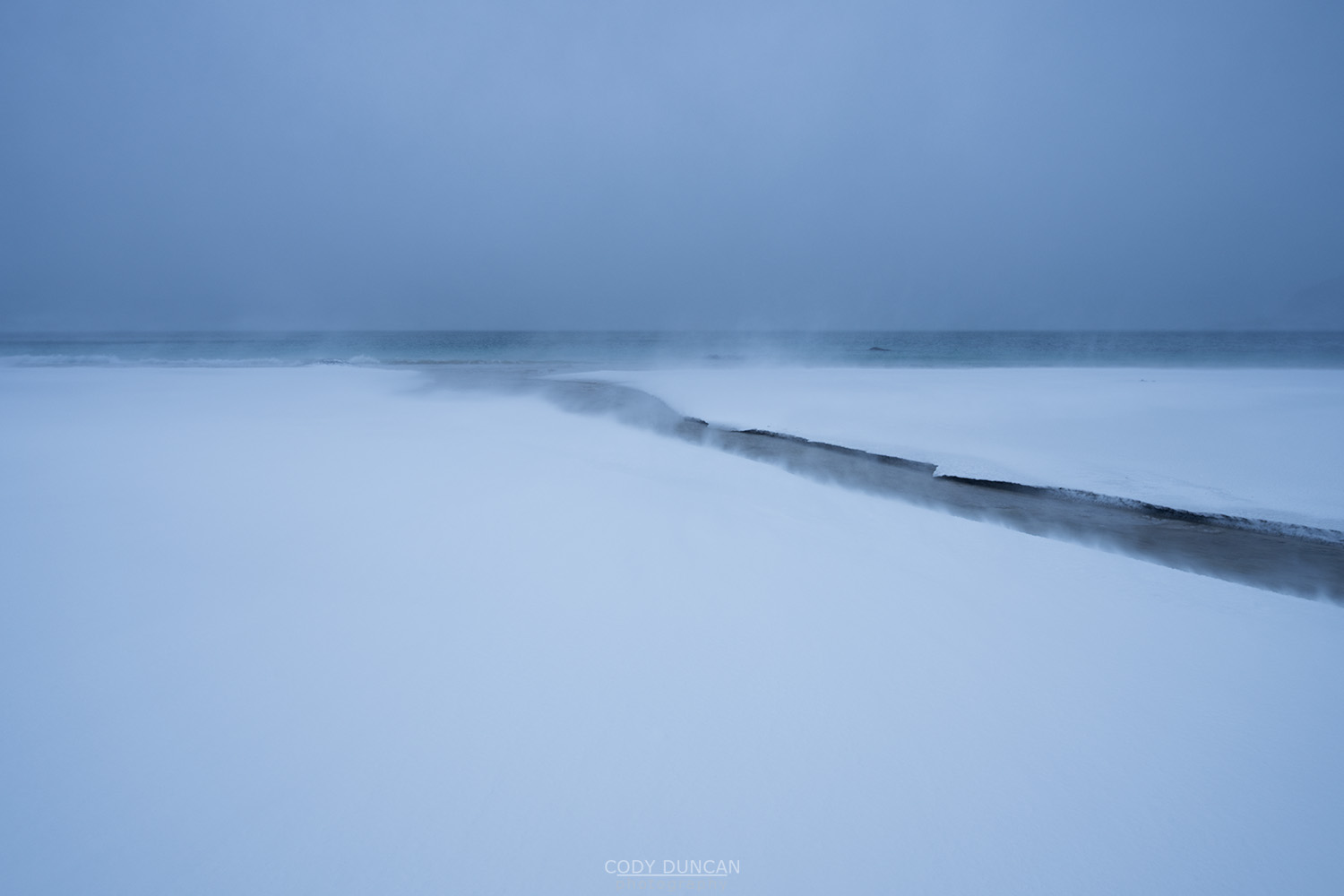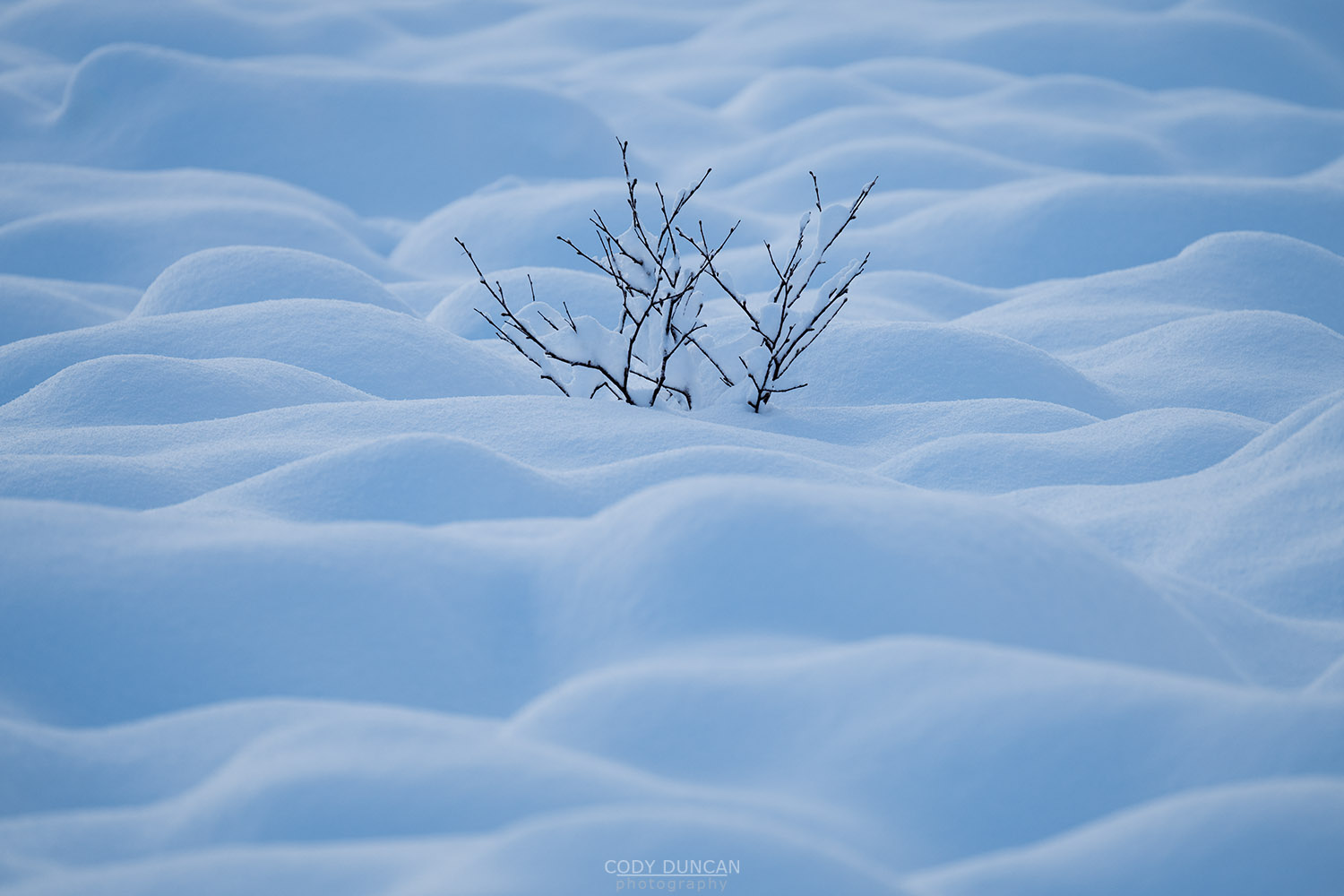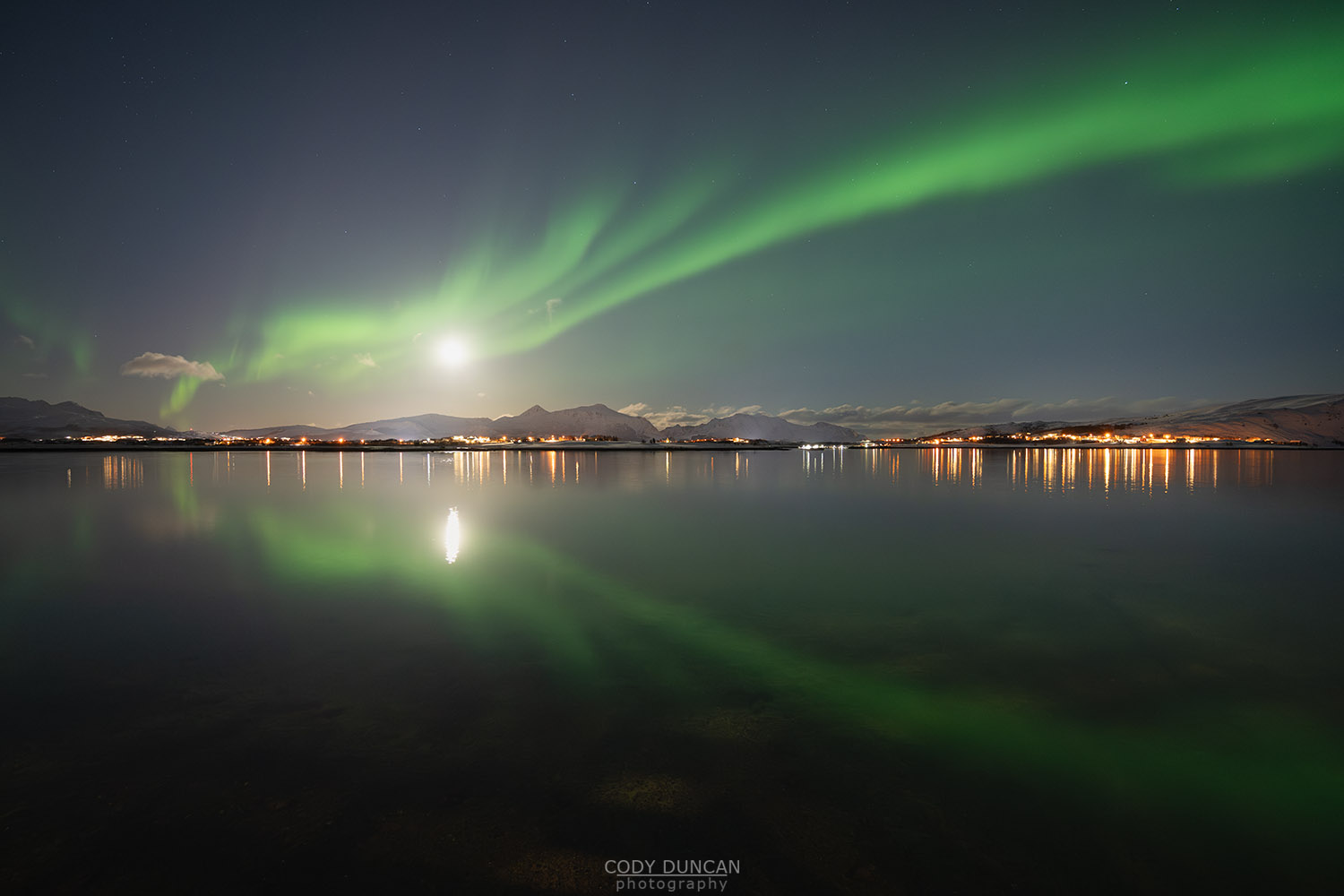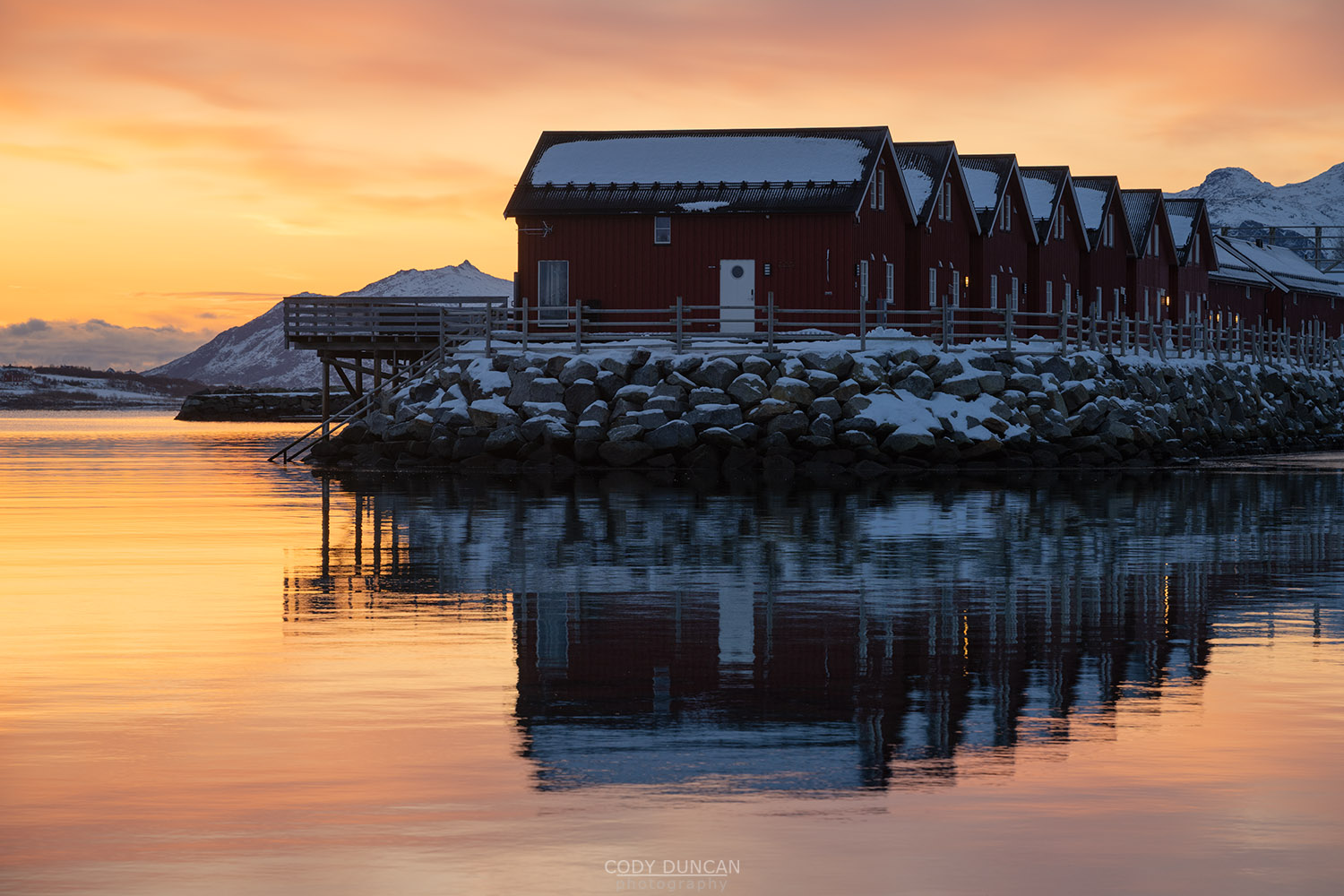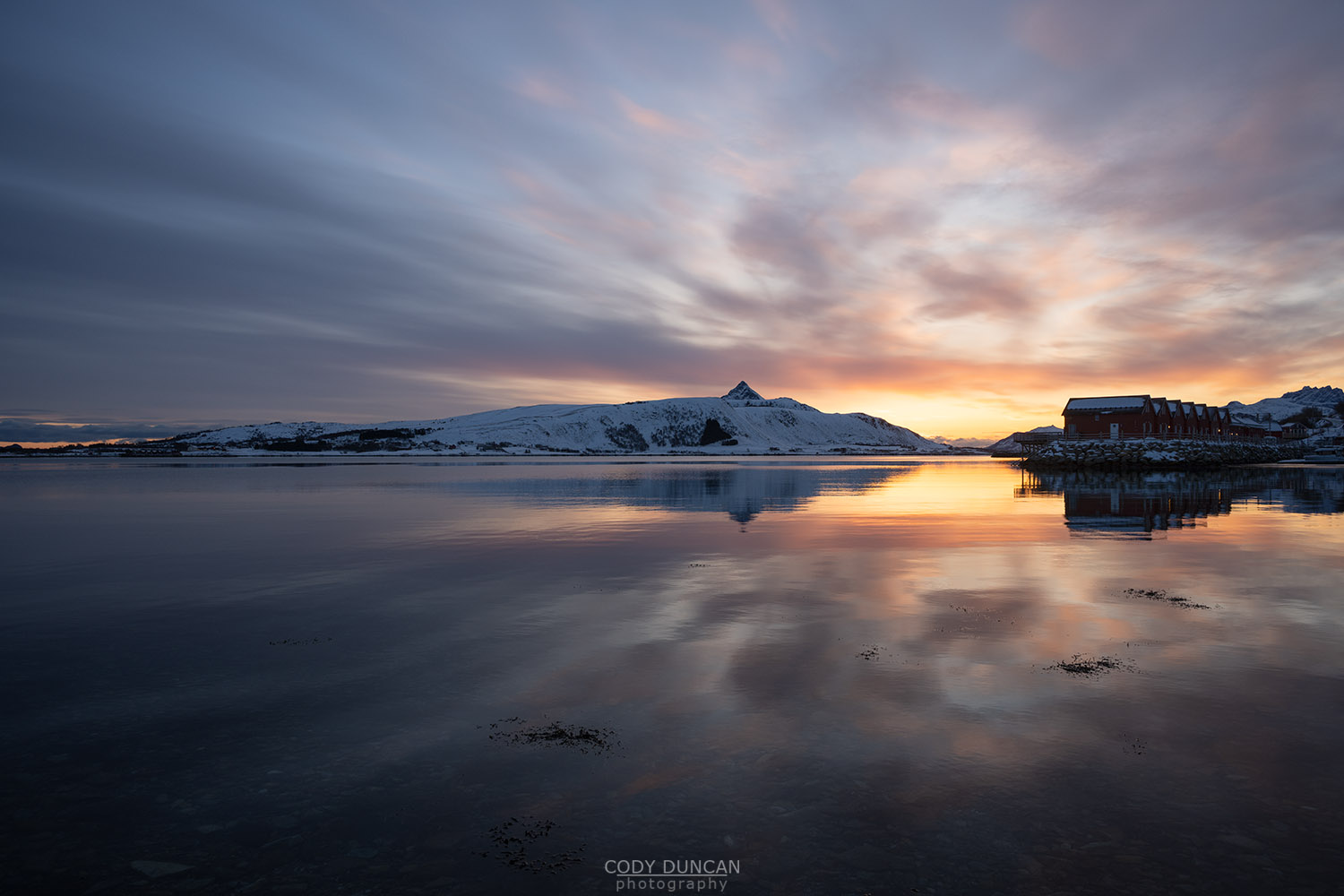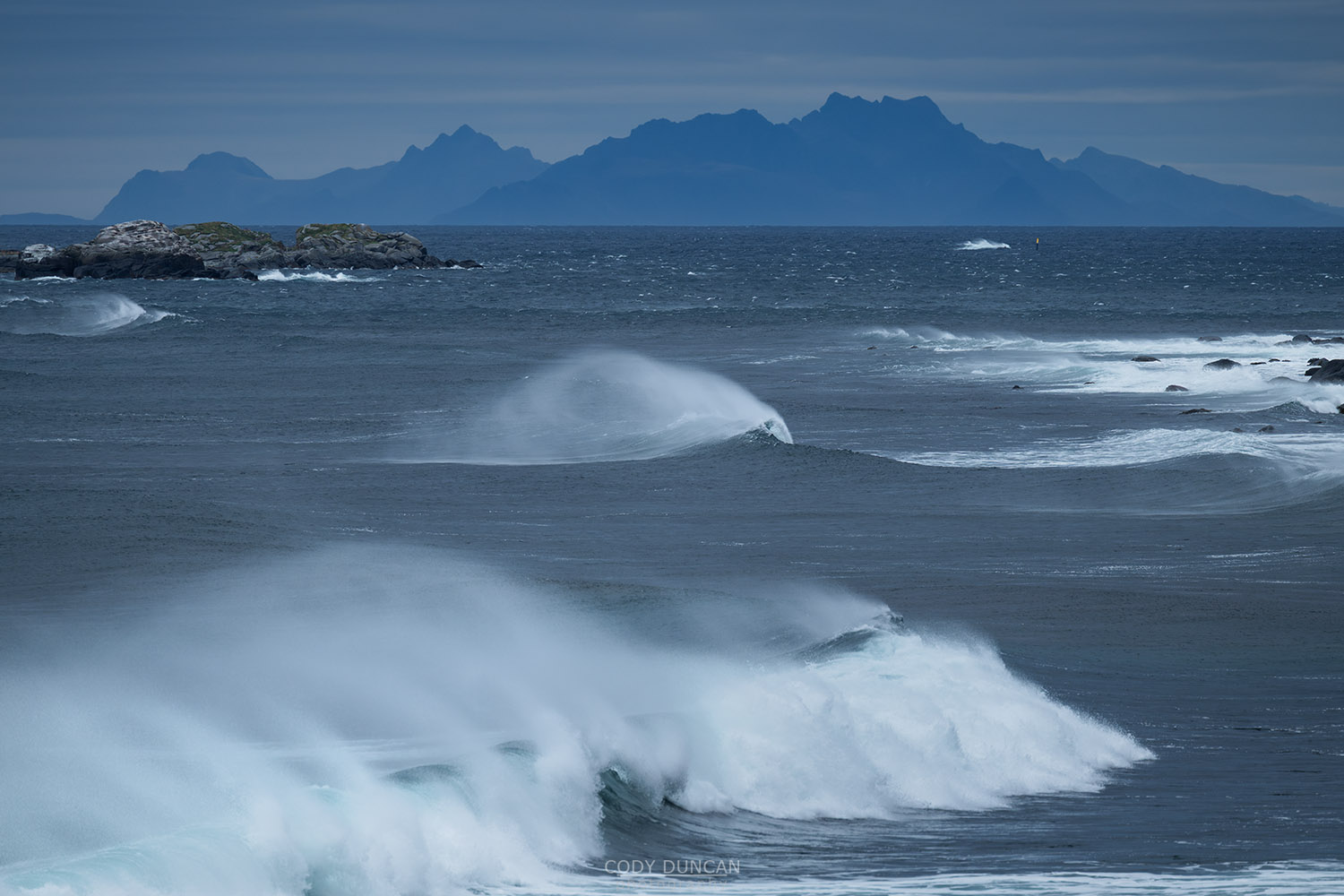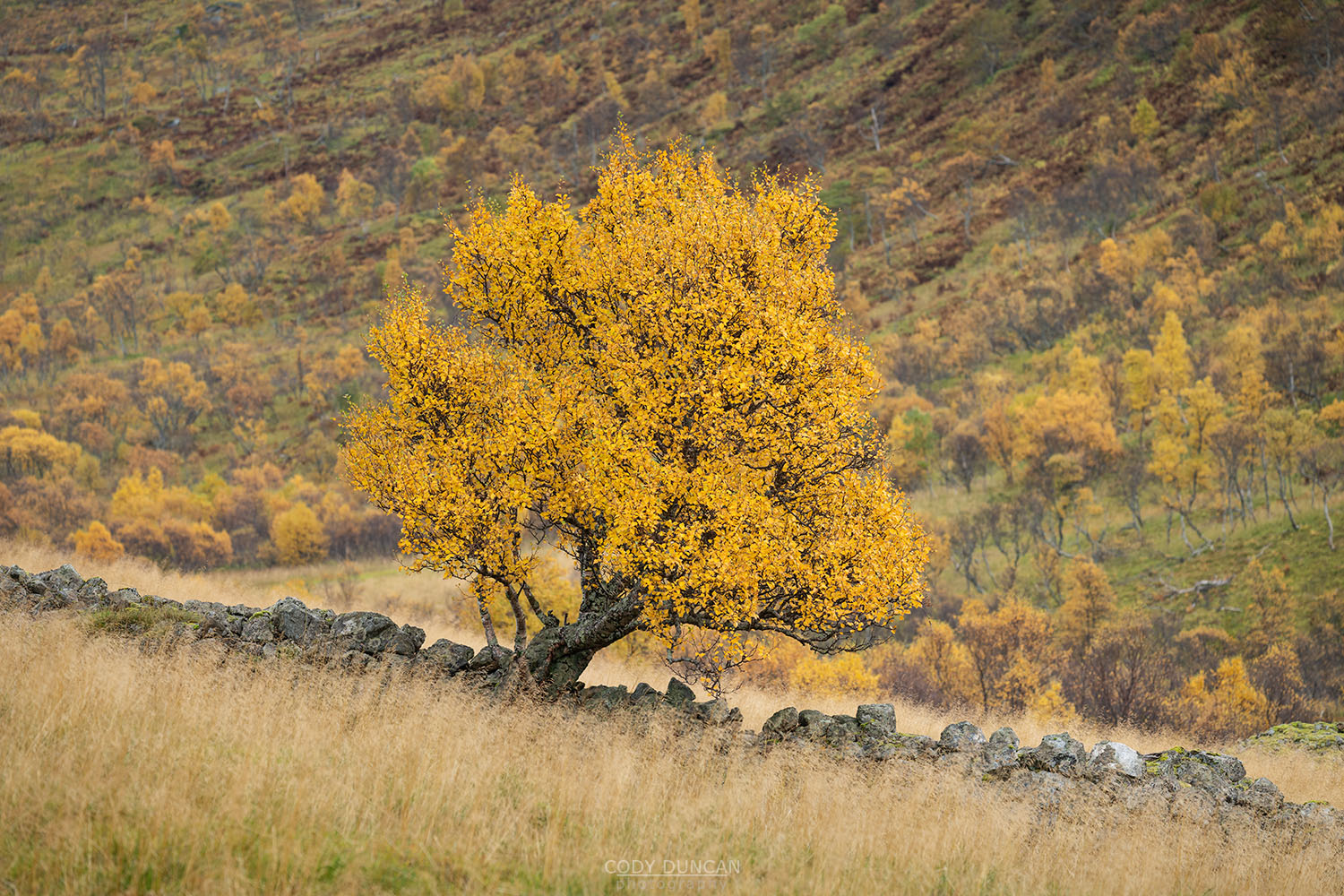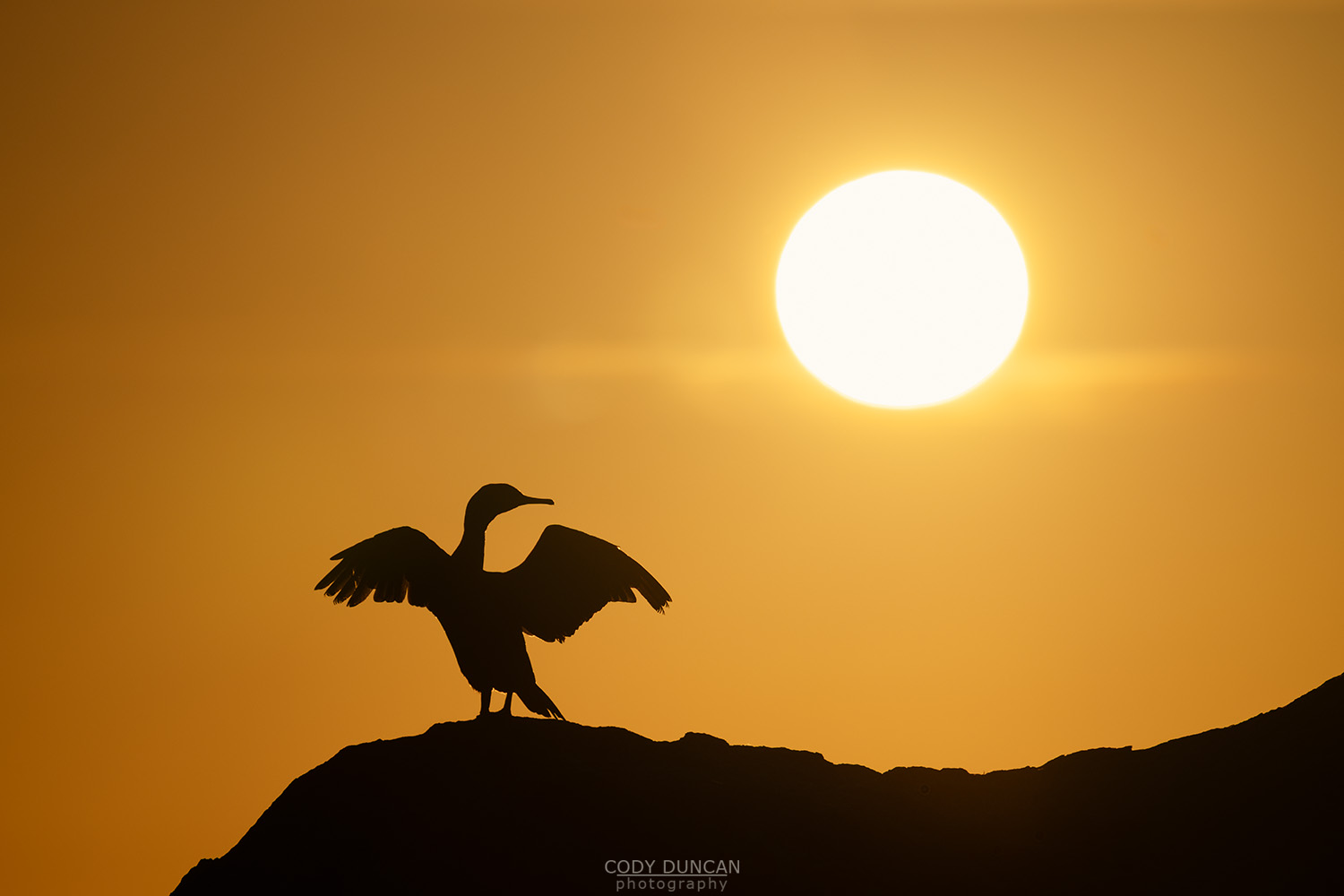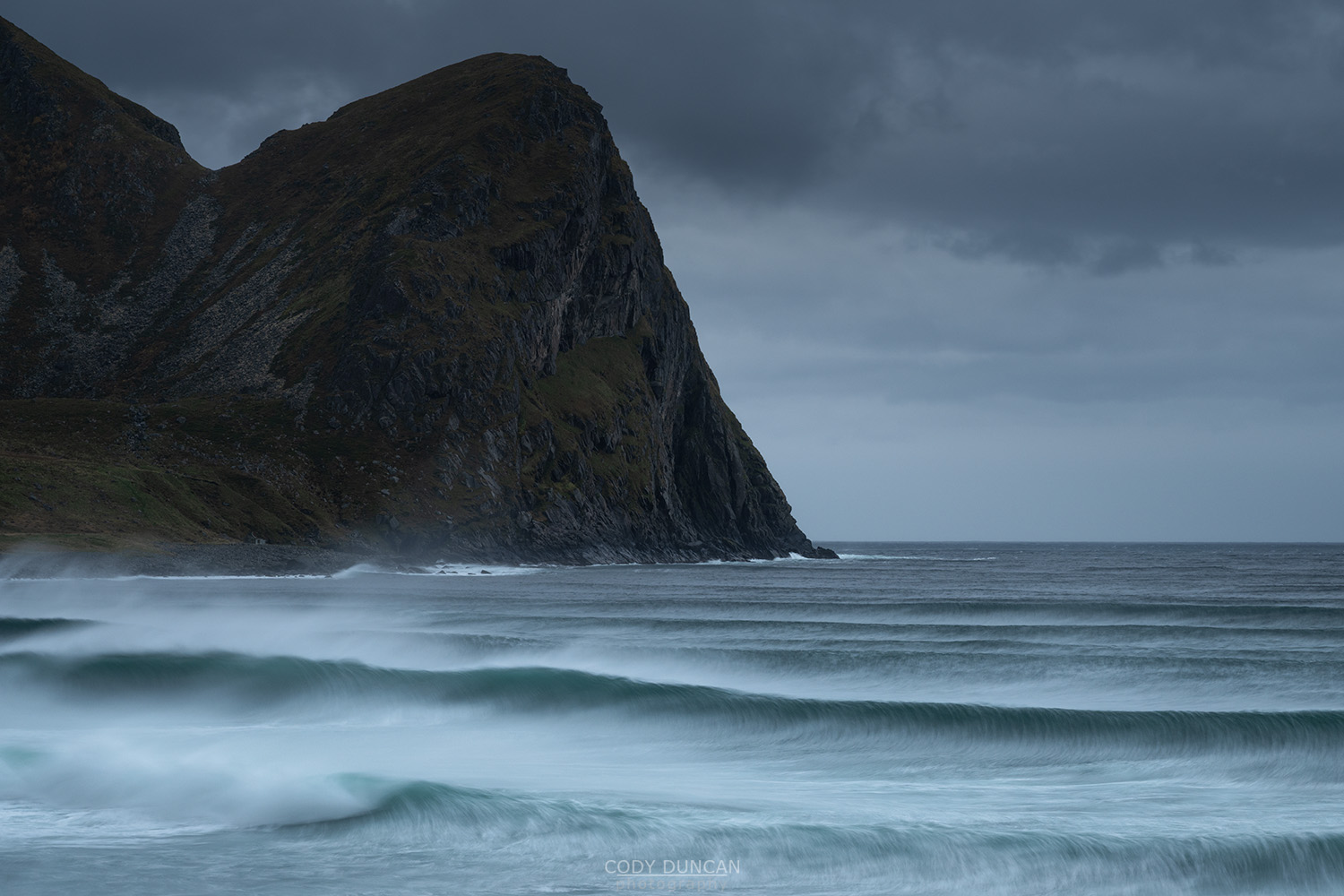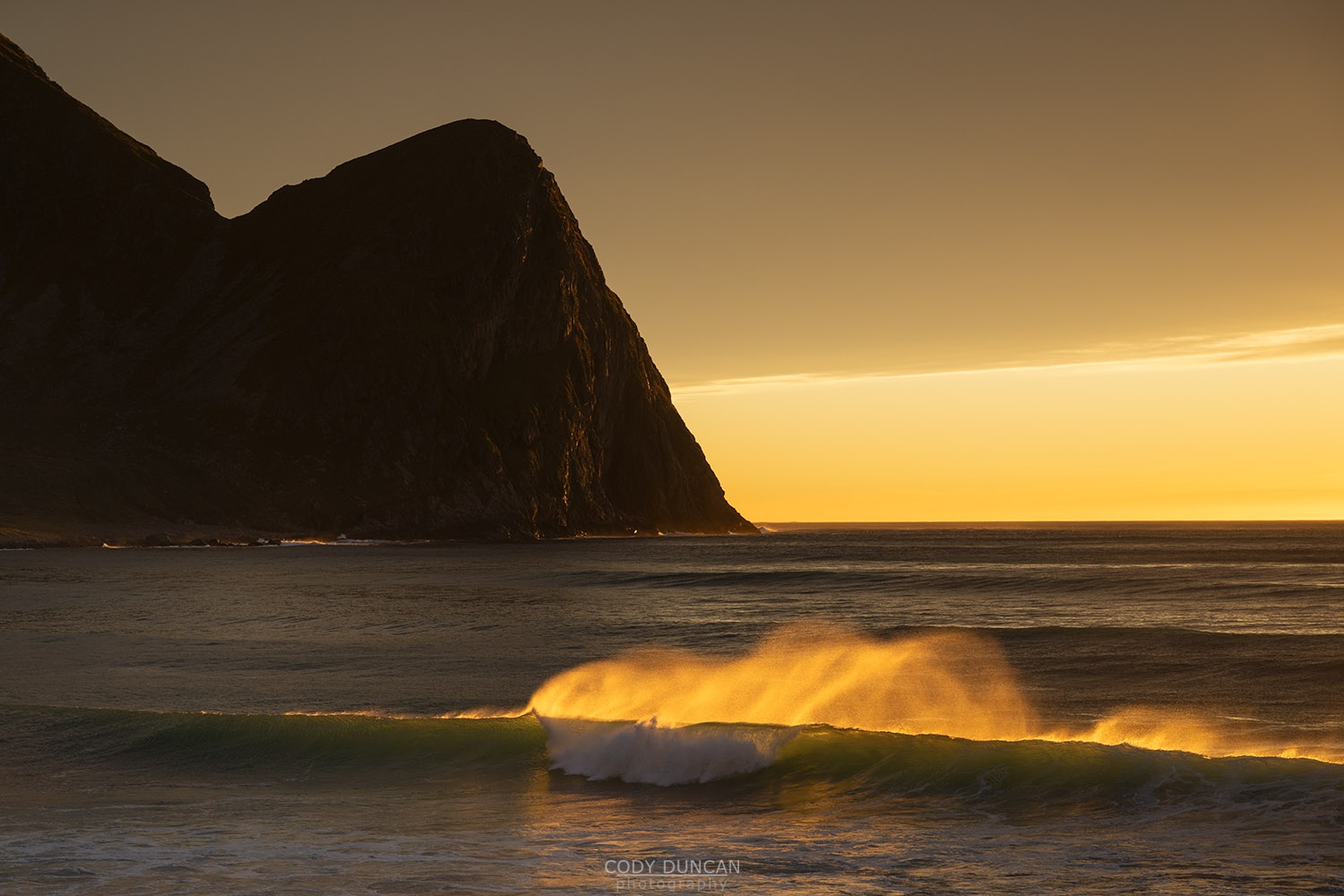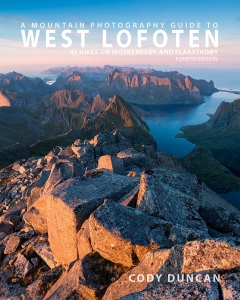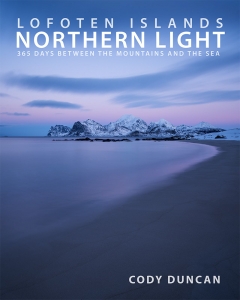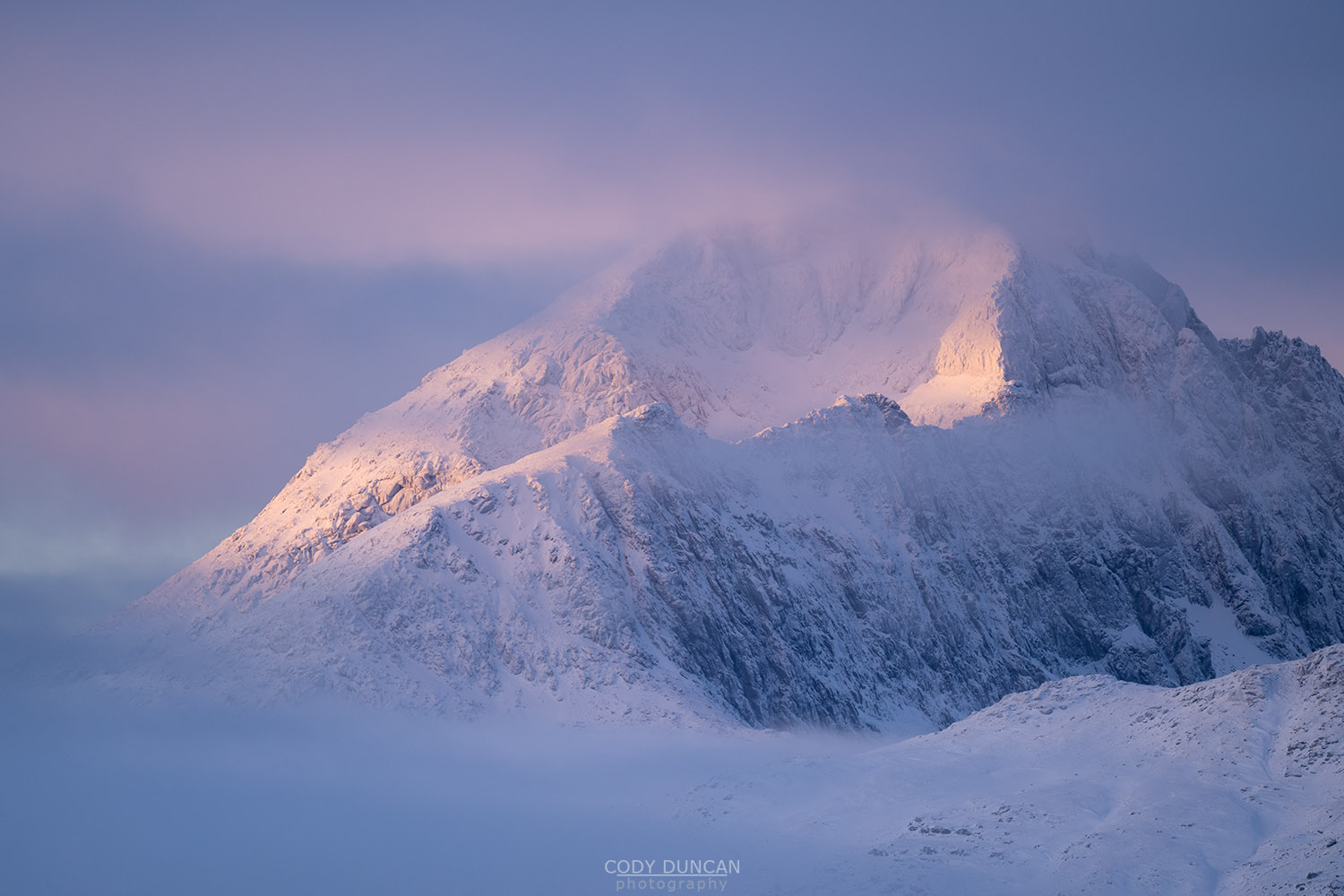
Photo: Misty clouds conceal Ristinden peak at dawn, Vestvågøy, Lofoten Islands, Norway. February 5, 2026. 09:30
I will dare to say that the last month has been the best winter in recent memory. Day after day of cold and still weather, barely a hint of wind, and nights of dancing northern lights over the snow covered mountains. Having completed my first 2 photo workshops of the year, both groups have walked away with amazing images that would often take multiple visits to Lofoten to achieve. It has been a good start to my winter guiding season compared to the struggles with warm, stormy weather of the previous couple years. Let’s hope this continues!
This image is from one of those mornings where I wish I could freeze time. Central Vestvågøy was largely covered in a low, wispy fog flowing in and out of the valleys and hills. Rarely have I ever seen such conditions in winter. Unfortunately, it was also a day in which I had to move the group from Leknes to Svolvær, which always makes things a little difficult with a van stuffed with luggage (and this group had a lot of luggage!).
As we drove east across Vestvågøy I could see the misty clouds swirling around the mountain peaks and as I reached the low pass at Torvdalshalsen, which, most importantly, has a parking area, I knew it would be a near-perfect location for the time being as the dawn light lit the steep slopes or Ristind among the swirling mist.
Despite the stillness, moments like this are often brief, and this was one of those times to remind the group with one of my common sayings, ‘Less talk, more walk!’ In other words, get moving people, this light isn’t going to last forever! And eventually the mist rose and concealed the mountain.
Camera Info:
Nikon Z8
Nikon 100-400 f/4.5-5.6
340mm
ISO 200
f5.6
1/160 Second
WB Daylight

